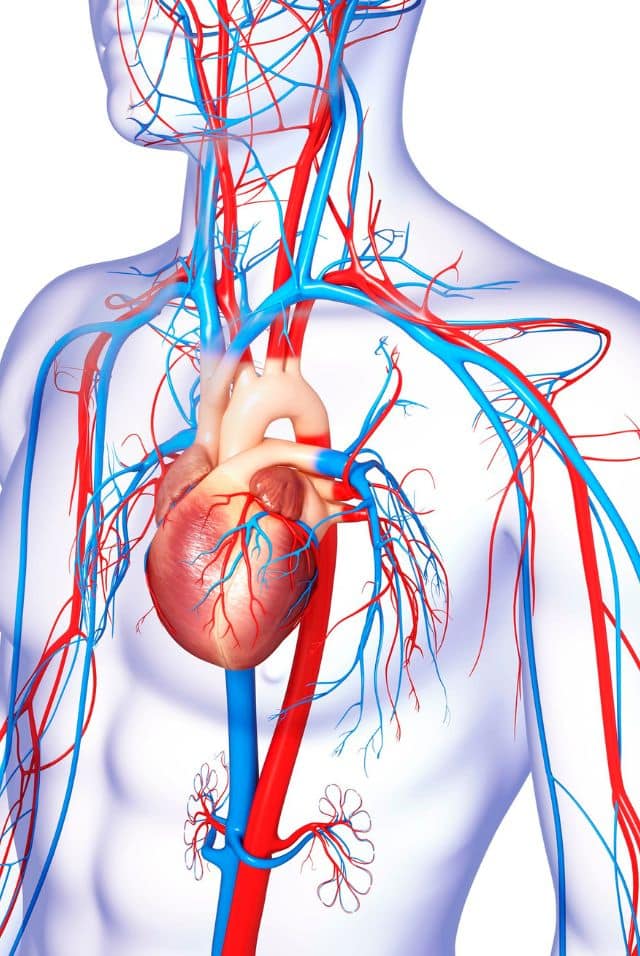Do Blood Thinners Decrease Blood Pressure? – Introduction
Blood thinners are a group of drugs that are used to decrease the risk of thrombosis (blood clotting) in several medical conditions, such as atrial fibrillation, coronary artery disease, stroke, myocardial infarction, and venous thromboembolism.
They are further classified as antiplatelets and anticoagulants according to the mechanism by which they act to prevent thrombotic events. Antiplatelets decrease the adhesion of platelets, a mechanism necessary for clot formation.
Examples of this group of medications include aspirin, dipyridamole, clopidogrel, prasugrel, ticlopidine and vorapaxar. (1)
Anticoagulants exert their effect by antagonizing the production of or blocking one or more proteins involved in the coagulation cascade, a series of in-chain reactions that occur when blood vessels are damaged or when blood is exposed to tissues other than intact blood vessels.
This category includes warfarin and other coumarin-derived drugs, heparin and its derivatives, novel oral anticoagulants, such as rivaroxaban, apixaban, betrixaban, edoxaban, and dabigatran, and the direct thrombin inhibitors argatroban, desirudin and bivalirudin. (1)
An overview of adverse reactions to blood thinners
Adverse reactions to drugs are an important point to bear in mind when using any medication. Every patient is a different person, with different medical contexts and, ultimately, dissimilar life contexts. Therefore, the risk for adverse reactions or drug interactions should be addressed in a case-by-case fashion.
Adverse reactions to blood thinners are specific for each group of drugs ranging from mild to moderate reactions like gastrointestinal intolerance, minor bleeding, headache, and rash, to severe reactions like uncontrolled external or internal bleeding. (1) More on this topic will be treated in future articles.
Increased bleeding risk is one of the most important adverse reactions of these medications since they act primarily by stopping the process of hemostasis, and patients usually should take precautions when being involved in activities that increase the risk of trauma.
Blood thinners and cardiovascular disease

Blood thinners were thoroughly tested on the benefits they impose in the primary and secondary prevention of cardiovascular disease. Aspirin is shown to probably provide a net benefit over the risks of bleeding for secondary prevention of cardiovascular events. (2)
Now, let’s go back to our question:
Do blood thinners decrease blood pressure? Do they have any effect on blood pressure at all?
Warfarin and Dabigatran
Several research pieces addressed the latter question since it was found that warfarin and dabigatran were shown to produce calcification of the median region of arteries, producing augmented rigidity that leads to increased blood pressure in rodent models. (3)
The calcification process is presumed to be produced by decreased activity of thrombin, a protein involved in the coagulation cascade, and reduced activity of other vitamin K-dependent proteins originating in the endothelium, the inner surface of blood vessels.
Several years later, this effect was evaluated in humans taking warfarin and dabigatran compared to a group of patients who were not on warfarin therapy. (4) The results showed no statistical significance between the groups, as shown in several other studies published later. (5-7)
Aspirin
A study assessing the effect of aspirin on blood pressure compared a group of patients who took an antiplatelet dose of aspirin at bedtime and another group that took it in the morning. (8) They evaluated blood pressure readings in the ambulatory setting and encountered a significant decrease in blood pressure at bedtime in the group that took aspirin.
This result was evaluated later by Bonten et al. but differed in that the authors measured blood pressure with a 24-hour blood pressure monitor. The results indicated no significant differences between groups. (9)
No information was found for the rest of the antiplatelet drugs, thrombin inhibitors, and novel oral anticoagulants on the relationship to changes in blood pressure.
Why is blood pressure important when taking blood thinners?
Intuitable, increased pressure is associated with an increased risk of bleeding complications in patients taking blood thinners, including the fearful complication of intracranial bleeding. (10)
Patients on blood thinner medications should have regular blood pressure monitoring and control since the literature depicts a significantly increased risk of bleeding, specifically intracranial bleeding, for those who presented relatively poorer blood pressure control. (10, 11)
2017 ACC/AHA guidelines on hypertension recommend a blood pressure goal in most adults of <130 mmHg for systolic blood pressure and <80 for diastolic blood pressure to decrease the risk of cardiovascular complications (stroke, myocardial infarction). (12)
However, a study performed by et al. assessing blood pressure measurements and the risk of bleeding encountered in patients suffering from heart failure found a J-curve association of blood pressure values to bleeding risk. (13) Apparently, it is neither desirable to have very high blood pressure nor very low blood pressure for this group of patients. The risk/benefit ratio should be evaluated on an individual basis.
Conclusions
There is controversy on whether blood thinners produce an effect on blood pressure or not. The studies presented encountered several confounders possibly involved in the results, as in the study evaluating the effects of warfarin. Patients on this medication had a more delicate health status and, therefore, relatively better blood pressure control.
More research is needed to elucidate this possible effect, as well as for other antiplatelet drugs, thrombin inhibitors, and novel oral anticoagulants on the relationship to changes in blood pressure.
Blood pressure control is of paramount importance since it is a major and independent risk factor for cardiovascular disease. This is especially relevant to patients on blood thinner therapy due to the association between increased blood pressure and increased risk of bleeding.
Appropriate education on blood pressure control is warranted for patients suffering from hypertension and taking blood thinners.
See Also
Do Blood Thinners Affect Oxygen Levels?